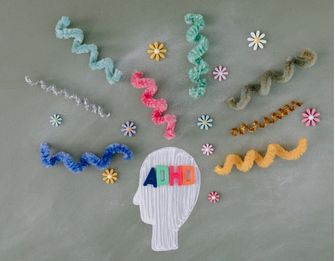How ADHD, Autism, and Dyslexia Affect Learning Differently
Every child learns in their own unique way — but for children with ADHD, autism, or dyslexia, the traditional classroom model often fails to meet their needs. ADHD learning needs to be different.
These neurodivergent learners process information differently, face unique challenges, and thrive when teaching strategies are personalised to their strengths.
At Minariel Tutors, we specialise in creating tailored tutoring approaches that empower learners to succeed — not by forcing them to “fit the system,” but by adapting the system to fit them.

Here’s how ADHD, autism, and dyslexia affect learning differently — and the strategies that make a difference.
1. ADHD: Navigating Focus and Executive Function Challenges
How ADHD Affects Learning
Children with ADHD often have difficulty with sustained attention, working memory, and impulse control. They may understand the material but struggle to stay engaged or complete tasks consistently.
Common challenges include:
- Short attention spans and frequent distractions
- Difficulty with organising tasks and managing time
- Struggles with following multi-step instructions
- Emotional frustration when learning feels overwhelming

Tailored Teaching Strategies for ADHD
- Chunking information: Breaking lessons into smaller, manageable parts
- Movement-based learning: Incorporating physical activity to improve focus
- Multi-sensory techniques: Using visuals, sound, and hands-on activities
- Positive reinforcement: Building confidence through encouragement and achievable goals
With the right strategies, children with ADHD can channel their creativity, curiosity, and problem-solving strengths into academic success.
2. Autism: Supporting Social and Sensory Needs in Education
How Autism Affects Learning
Autistic learners often experience differences in communication, social interaction, and sensory processing. They may excel in certain subjects but struggle with unpredictable environments, abstract instructions, or overwhelming sensory input.
Common challenges include:
- Difficulty understanding vague or figurative language
- Sensory sensitivities in noisy or busy classrooms
- Challenges with transitions and unexpected changes
- Needing extra time to process new information
Tailored Teaching Strategies for Autism
- Structured learning environments: Predictability reduces anxiety and builds confidence
- Clear, direct communication: Avoiding abstract language and giving explicit instructions
- Visual supports: Using diagrams, schedules, and visual cues to aid understanding
- Strength-based teaching: Building on special interests to enhance engagement
When autistic learners are supported with consistency, clarity, and empathy, they can thrive both academically and emotionally.

3. Dyslexia: Unlocking Literacy Through Alternative Pathways
How Dyslexia Affects Learning
Dyslexia impacts the way the brain processes written language, making reading, spelling, and writing more challenging. It does not reflect intelligence levels — in fact, many dyslexic learners are exceptionally creative and analytical.
Common challenges include:
- Difficulty decoding and recognizing words
- Slow, effortful reading that impacts comprehension
- Spelling and writing struggles
- Low confidence due to repeated setbacks
Tailored Teaching Strategies for Dyslexia
- Phonics-based instruction: Systematic, structured approaches to decoding words
- Multi-sensory learning: Combining sight, sound, and touch to reinforce literacy skills
- Assistive technology: Tools like text-to-speech and audiobooks to support reading
- Confidence-building techniques: Focusing on strengths to reduce frustration
With the right dyslexia support, learners gain tools that make reading and writing accessible and empowering.

Why Tailored Teaching Matters
Each neurodivergent learner brings unique strengths and challenges. A “one-size-fits-all” approach simply doesn’t work. At Minariel Tutors, we provide:
- Personalised learning plans tailored to ADHD, autism, and dyslexia needs
- Multi-sensory, strength-based strategies that boost engagement
- Safe, supportive environments where learners feel understood
- Collaboration with families to ensure consistent progress
Final Thoughts
ADHD, autism, and dyslexia affect learning in different ways, but they all share one thing in common: when students receive specialist support, their potential shines.
If your child has struggled in traditional settings, it’s not a reflection of their ability — it’s a sign they may need a different approach.
Book a free consultation with Minariel Tutors today and discover how we can help your child thrive on their own terms.
